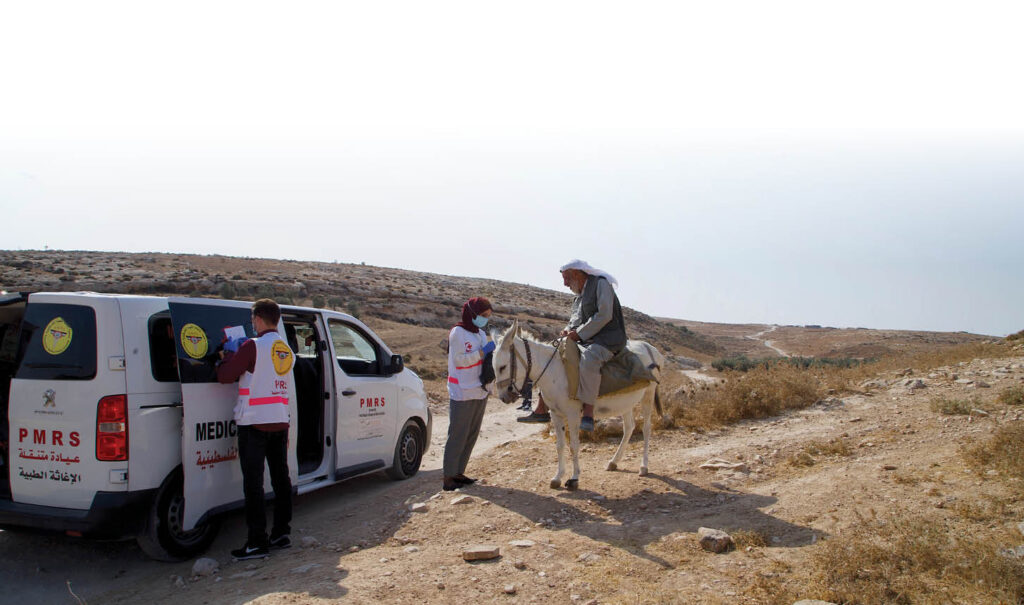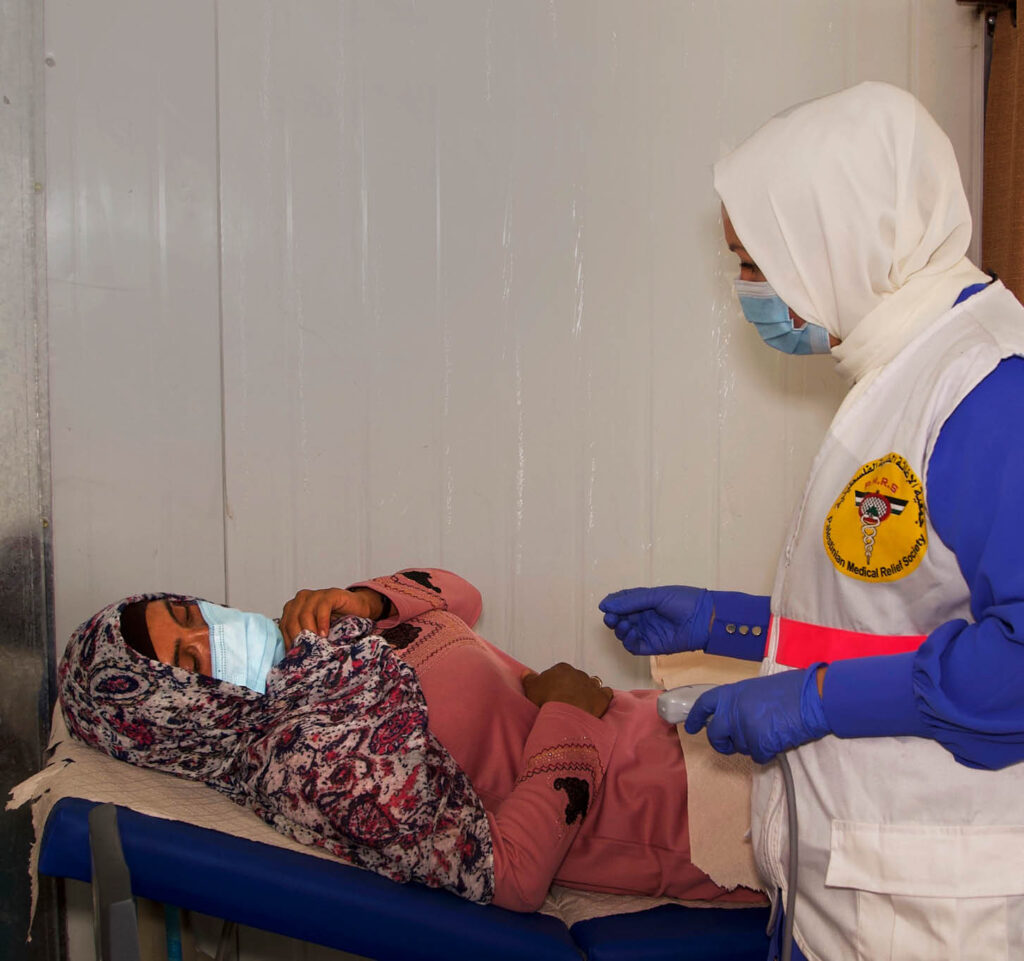“This is the only health care service in this area.”
Amina is a 31-year-old woman from Fahma Refugee Camp located southwest of Jenin in the northern West Bank. She lives with her husband in a small, old house with their five children and her husband’s family. Fahma is in an isolated area, with no facilities such as schools or health centers.
Amina has been visiting a mobile clinic in Fahma on a weekly basis to check on her pregnancy and general health. In 2019, UNFPA started to support two Palestinian Medical Relief Society (PMRS) mobile-clinic services in Jenin and Hebron in the West Bank. Today, with generous funding from the Government of Canada, UNFPA supports five clinic teams across the West Bank. The clinics ensure access to basic primary health care for around 52,000 people in and around the Jordan Valley, Jenin, Hebron, Salfit, Tulkarem, and Qalqilya.
The mobile clinics visit communities in isolated areas of the West Bank or Area C, an area that represents 60 percent of the West Bank and is home to about 300,000 Palestinians. Israel maintains full military and civil control in Area C and bans Palestinian development and construction, including the building of permanent health clinics.

According to Dr. Mohammad Iskafi, the PMRS emergency program director, “With support from UNFPA, we now provide comprehensive and needs-based services to marginalized communities. What is unique about our service is that we provide training for our health care staff on sexual and reproductive health, gender-based violence (GBV), mental health, and disabilities. Peer-to-peer youth-education activities are also integrated into our mobile clinic services.”
Amina explains, “Before the mobile clinics started to visit us, we never had any health care services in Fahma. I never had regular pregnancy checkups during my four previous pregnancies. I would go to Jenin, an hour away by car, for an early-pregnancy checkup and then to the hospital there for the delivery eight months later.”
Amina’s last pregnancy was unlike her previous ones. In July, when the clinic started visiting Fahma, Amina was eight months pregnant. She had preeclampsia (a potentially fatal pregnancy complication characterized by high blood pressure and swelling in the hands, feet, and legs). The health care team visited Amina in her home on a weekly basis to carry out necessary tests and closely monitor the health of her and her baby. They informed her about preeclampsia and its risks, provided her with the needed medication for blood pressure and back pain, followed up with her regarding her weight and nutrition, and provided her with the required vitamins. The team helped Amina to coordinate with the hospital for labor to promote and ensure the care and safety of the mother and baby.

“For many women and girls, these mobile clinics may be the only realistic and affordable opportunity to access health care,” says Kristine Blokhus, UNFPA’s Representative to Palestine. “Having these services available makes it easier for them to make informed decisions about their lives and bodies, for example by accessing family planning services.”
A continuum of care is an essential element of this project. The mobile clinic team is now following up with Amina and her baby. They provided her with family planning advice and contraceptives. “I do not plan to have any more children,” she notes, “but I will continue to visit the mobile clinic for regular checkups and will continue to attend the health awareness sessions. I will visit the psychologist when I feel like talking to someone privately about my problems. She has been very reassuring and helpful.”
Dr. Iskafi adds, “What I consider the greatest achievement in this project is the initiation of home visits to the elderly, pregnant women, and people with disabilities. All our services, including home visits, have continued during the COVID-19 pandemic. UNFPA was the first to respond to our needs, providing our health care teams with masks, gloves, and disinfectants.”
“I would like to thank PMRS and the supporters of this mobile clinic service. We would really like this service to continue since it is the only health care service in this area and the best service in Fahma,” Amina says.
The United Nations Population Fund (UNFPA) is the UN’s lead agency for sexual and reproductive health and rights. UNFPA’s vision is to contribute to a world where every pregnancy is wanted, every childbirth is safe, and every young person’s potential is fulfilled.
For further information,
please contact Laura Mandel at: lmandel@unfpa.org
www.palestine.unfpa.org


